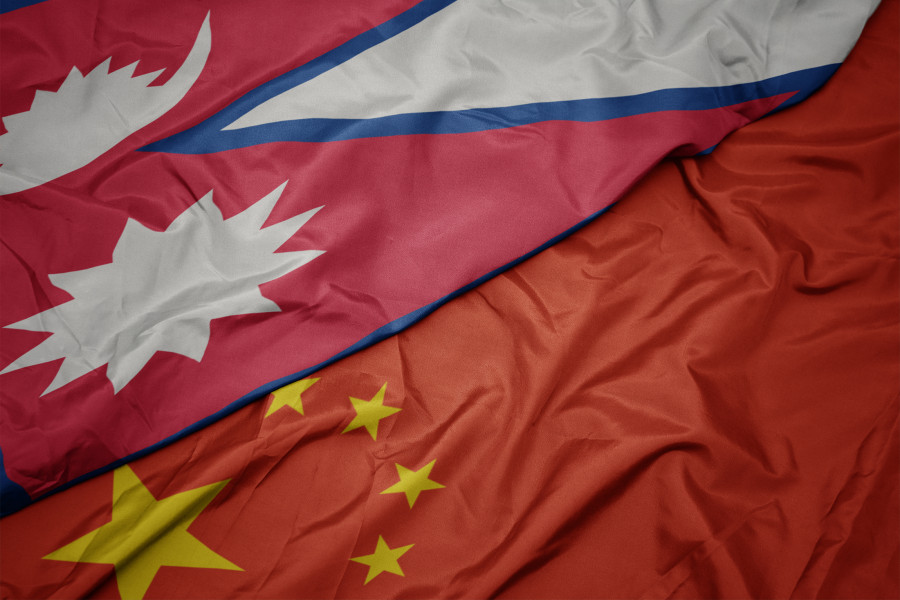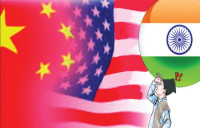Columns
Nepal-China ties are set to improve further
China has been banking on the Belt and Road Initiative to influence relations with countries; Nepal being one of them.
Sweta Khadka
Nicholas Kristof and Sheryl WuDunn, in their book China Wakes: The Struggle for the Soul of a Rising Power (1994), confirmed that the rise of China was a foreseeable event decades ago. In the 21st Century, China has not just shaken the world but is ruling it, with its economic progress accompanied by a steady expansion of its cultural and diplomatic influence.
The Belt and Road Initiative was announced in 2013 against this backdrop. It symbolises China’s wealth, power and unprecedented ambition for growth. Although primarily an infrastructural project, at the heart of which lies economic growth through cross border connectivity, it is also inclusive of soft power components, which is what makes the project unparalleled. Joseph Nye coined the term ‘soft power’ and defined it as the ability ‘to shape the preferences of others through appeal and attraction’. The Belt and Road Initiative’s inclusion of the soft power component has not just widened the scope of the project but elevated the project’s position in terms of the potential it holds to influence relations with nations.
China’s soft power expansion under the Belt and Road Initiative has been experienced in many countries and is not unique to Nepal. However, each state is unique, and it becomes vital for the country, particularly at the receiving end of any political advancement, to understand the driving forces, to devise strategies centred at protecting its national interest.
Why Nepal?
Nepal’s enthusiastic involvement in this initiative has been carefully observed. The driving force for Nepal to join BRI was that, if successful, it could reduce if not break the country’s age-old dependence on India for connectivity. However, there is more to BRI than roads, railways, ports, and bridges. China and Nepal already share a healthy and harmonious political relationship. So why is China aspiring for deeper social and cultural relations through BRI at this point? What is it that China hopes to receive from its old friend?
Nepal and China are often labelled as having strong political ties but loose social bonds. The political relationship is primarily based on two pillars: Nepal’s need for balancing India’s over dominance on its territory and China’s need for assurance that Nepal adheres to the ‘One China Policy’. However, the people-to-people bond has been limited. Nepal’s border with China is mountainous and therefore limits movement. Also, the nation differs widely in language and culture—restricting more in-depth exchanges.
Conventionally, China has only sought to retain its position on its side of the Himalayas, and would not intervene in the other side unless it would identify a threat to its security. China’s attention towards Nepal grew with Nepal’s political instability, especially since the Maoist insurgency in 1996. Observing the increasing engagement of external forces in Nepal, China was compelled to make increasing inroads into Nepal.
The doubling of investment and aid from China, the mushrooming Chinese businesses in Thamel, the considerable number of students and academics flocking to China under scholarships, the establishment of the Confucius Institute at Kathmandu University—all point in the same direction.
China has been enhancing political, diplomatic, economic and cultural exchanges with Nepal over the past two decades, which is expected to solidify more under the Belt and Road Initiative. Nepal at the receiving end is also committed to flourishing Nepal-China relations. A few political events worked as a catalyst to move Nepal in favour of China’s Belt and Road Initiative. The economic blockade India put Nepal under in 2015 was a significant one.
Democracy a prerequisite
However, amidst the growing efforts of China’s soft power expansion, it also has received much criticism. The dominant view is that liberal values are a prerequisite of soft power and thus the fundamental criticism of China’s is that it will not yield global appeal because the nation’s illiberal political values will not be accepted. Nye clearly states the soft power of a country should have a natural growth lead by its ‘civil society and media’, not the state itself. In the case of China, this is far from being possible as the country is largely centrally controlled.
Despite the criticism, China’s unwavering commitment to forging bilateral and global partnerships is yielding results, gradually. Many studies show China’s increasing popularity in developing countries.
Chinese scholars have moved beyond the Nye’s framework and are attempting to establish ‘soft power with Chinese characteristics’. With time, the interpretation of power has evolved widely; models that have outlived their usefulness have been replaced by new ones. China, through its soft power diplomacy, attempts to offer a fresh model as an alternative to the western model.
As for Nepal, China’s growing soft power will demand Nepal to understand the Belt and Road Initiative phenomena from a broader perspective and conduct its foreign policy accordingly.
***
What do you think?
Dear reader, we’d like to hear from you. We regularly publish letters to the editor on contemporary issues or direct responses to something the Post has recently published. Please send your letters to [email protected] with "Letter to the Editor" in the subject line. Please include your name, location, and a contact address so one of our editors can reach out to you.




 14.07°C Kathmandu
14.07°C Kathmandu















